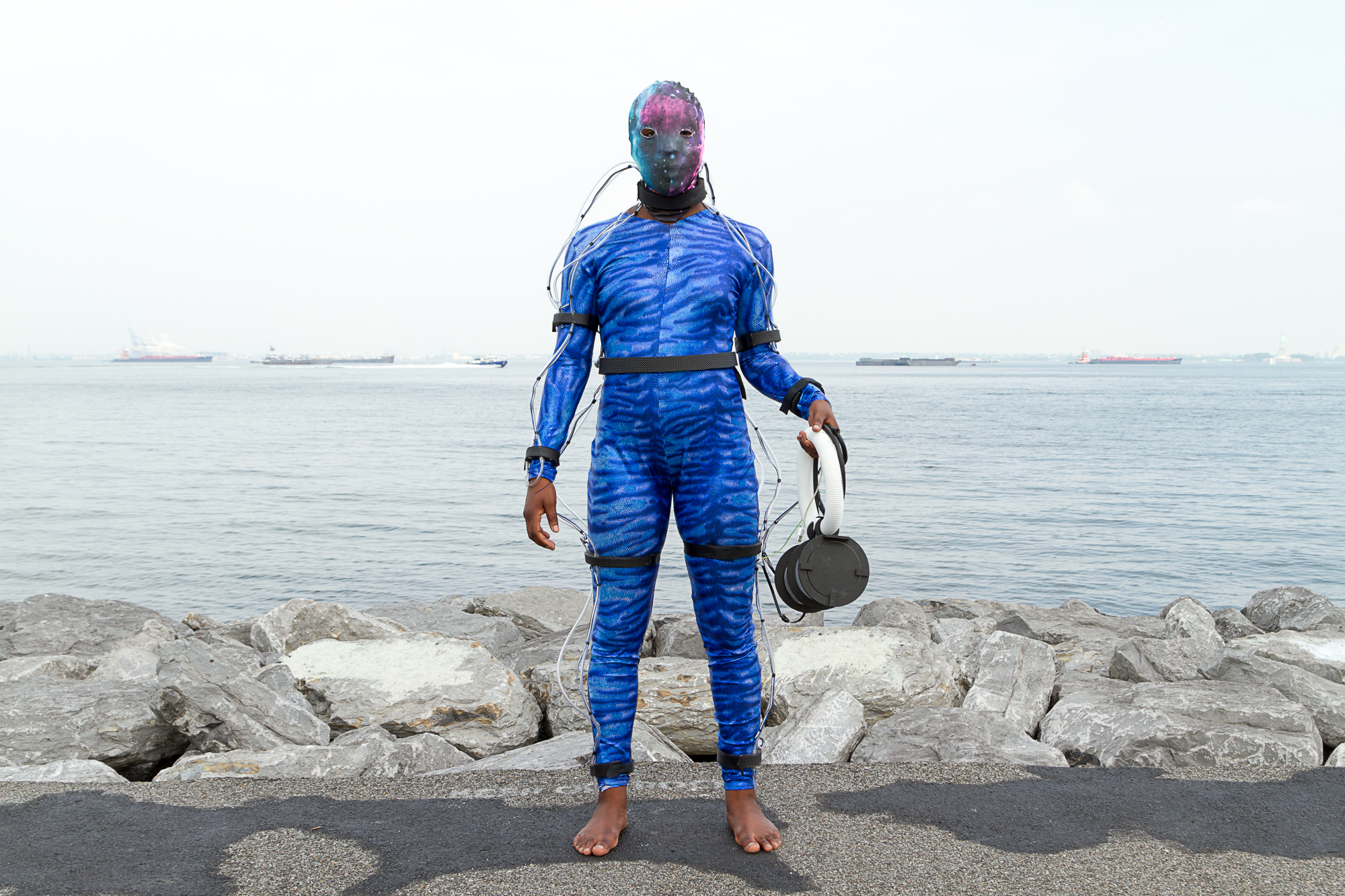Salome Asega, MFA Design and Technology '14
Salome Asega is a Brooklyn-based artist and researcher whose practice celebrates dissensus and multivocality. She is the co-host of speculative talk show Hyperopia: 20/30 Vision on bel-air radio and the Assistant Director of POWRPLNT, a digital art collaboratory. Salome has participated in residencies and fellowships at Eyebeam, New Museum, and the Laundromat Project. She also has given presentations at New Inc, Performa, Eyeo, and the Schomburg Center. Salome is currently showing work in the 11th Shanghai Biennale. She received her MFA from Parsons School of Design at The New School in Design and Technology and her BA from New York University in Social Practice.

Iyapo Films: Artifact 12, Iyapo Films: Artifact 111
Salome Asega, MFA Design and Technology ’14 and Ayodamola Okunseinde, MFA Design and Technology ’15 2016,
2017
Video (Runtime 1:27), Video (Runtime 3:18)
